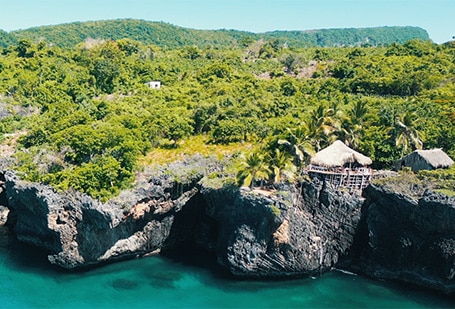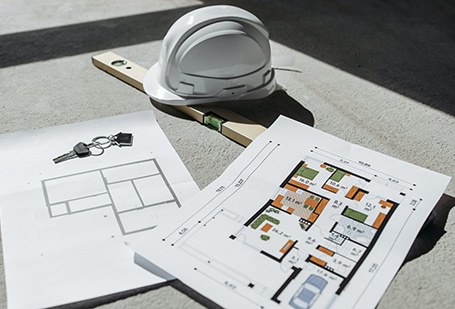FAQ
IMMOBILIER
À LAS GALERAS
Trouvez toutes les réponses aux questions les plus fréquemment posées sur l’immobilier à Las Galeras, Samaná, en République Dominicaine. La démarche légale pour acheter un bien immobilier, les retours sur investissement, les exonérations fiscales, les frais d’enregistrement…
QUELS SONT LES FRAIS ET LES TAXES DANS UNE TRANSACTION IMMOBILIÈRE ?
LES ÉTRANGERS PEUVENT-ILS ACHETER UNE MAISON EN RÉPUBLIQUE DOMINICAINE ?
AI-JE BESOIN DES SERVICES D'UNE AGENCE IMMOBILIÈRE ?
COMMENT CHOISIR LA BONNE AGENCE IMMOBILIÈRE ?
QUELLE EST LA PROCÉDURE LÉGALE POUR ACHETER UN BIEN IMMOBILIER EN RD ?
For a detailed legal guide please read the following article:
GUIDE TO BUY A PROPERTY IN DOMINICAN REPUBLIC
The procedure when investing in real estate in the Dominican Republic is similar to the United States, Canada and Europe. First of all, you need to find the right home fitting your budget and your project.
You can search HOMES FOR SALE IN LAS TERRENAS here and contact an agent to guide you in your property enquiry.
The legal buying process in 3 steps:
1 - The Purchase Offer
Once you are decided on a particular property, the first step is to send a formal written offer to the seller describing the main conditions under which you propose to purchase the property. This Purchase Offer, usually sent via email, includes details such as the purchase price, the payment terms and more aspects if necessary. It is recommended to be as transparent as possible from the start.
When the seller is presented with your offer, they can either accept the proposal or send a counter offer with different terms, closer to their expectations.
This delicate process of negotiation is unique to each transaction. Hence the importance to discuss with your real estate agent to come up with the best possible offer.
2 - The Promise of Sale
The second step is the drafting and signing of the "Promise of Sale". In the Dominican Republic, the POS is a legally binding document which needs to be signed in front of a notary public.
All the terms of the transaction are established in that document; it will include the full names of both parties, references establishing identities (such as valid passports, driver’s license), a clause in case of default from either party, a legal description of the property, the final purchase price, the payment terms, the date on which the property is delivered, the exact date of the closing, etc.
When signing the “Promise of Sale", the buyer is required to wire the first payment as agreed between the parties. The amount usually varies from 10% to 20% of the purchasing price. Depending on the type of transaction, this payment is either placed in the escrow account of the legal office representing you, or sent directly to the seller’s account.
At the same moment, the notary public will proceed with the due diligence process.
3 - The Deed of Sale
The last step to finalize your real estate transaction is to sign the "Deed of Sale”. It is a formal document legally binding on both parties and signed in the presence of a notary public.
As mentioned, the legal office needs to request and verify all the necessary documents (Due Diligence) to ensure a proper transfer of ownership to the buyer.
This process can take as little as a few days or considerably more. The required time will vary according to the availability of the documents, the people and the complexity of the transaction. By experience, it usually takes 2 to 3 weeks.
Both parties need to be physically present (or their legal representatives via a Power of Attorney) in front of the Public Notary. The Deed of Sale will be read and signed by both parties. The real estate agent will accompany during the signature process.
All funds (amount agreed between parties in the "Promise of Sale") need to be readily available for transfer at the time of closing. The buyer and the seller will sign all the necessary documents. Once the seller attests reception of the funds and only then, the public notary will stamp the "Deed of Sale".
Now, the sale can be recorded at the “Registry Office of Titles" by your legal representative. In most cases, it takes around 1 to 2 months to get the property under your name (or your company's name).
QUELS SONT LES FRAIS NOTARIAUX LORS DE L'ACHAT D'UNE PROPRIÉTÉ EN RD ?
QUELLE EST LA TAXE D'ENREGISTREMENT LORS DE L'ACHAT D'UN BIEN IMMOBILIER ?
Y A-T-IL DES TAXES FONCIÈRES ANNUELLES EN RÉPUBLIQUE DOMINICAINE ?
QU'EST-CE QUE LA CERTIFICATION CONFOTUR - LOI N°158-01 | EXONÉRATIONS FISCALES
QU'EST-CE QU'UN « DESLINDE »? PUIS-JE ACHETER UNE PROPRIÉTÉ SANS LE « DESLINDE »?
A “Deslinde” is a title of ownership or “Certificate of title" defining the limits of a property and its rightful owners. You CANNOT rightfully purchase a property without a clear “Deslinde”.
This document also certifies that the property was surveyed by a geometer (with GPS points) and that all of its boundaries were defined from the original title. A blue “Deslinde” means that all is in order. That document is issued right after the property gets approved, it is cleared.
Recent updates to the Dominican Republic's Property Registry Law require that all real estate transactions must have a clear "Certificate of Title" recorded at the Property Registry. Prior to this law, the whole responsibility for having a Clear Title Certificate was left to the buyers.
It is now the responsibility of the legal representative of the buyer to verify that the property has a clear "Certificate of Title".
Dominican Republic’s Property Registry Law makes it clear that a property cannot be sold and recorded at the Property Registry without having a “Deslinde” together with a clear “Certificate of Title”.






